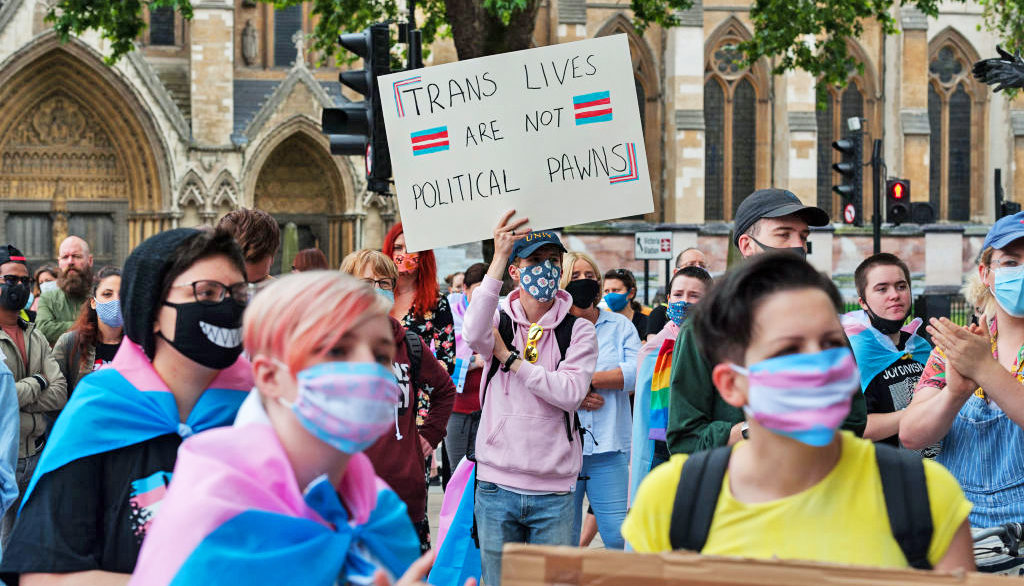The Parliamentary Standards Committee has ordered Crispin Blunt MP to apologise for a breach of parliamentary rules. The announcement came after it was revealed that the APPG on Global LGBT+ Rights, which Blunt chairs, failed to be adequately transparent on its relationship to lobby groups on the subject of gender self-identification.
The Parliamentary Standards investigation focused on a position paper circulated to government and opposition leaders in July 2020 as “a satisfactory outcome” to the debate. The paper called for, among other things, the adoption of self-ID, the medical transitioning of children and compulsory school education in gender identity. Lord Collins of Highbury, a member of the APPG, on 25 September described the paper as “backed by the LGBT Groups of the main political parties”.
But the paper thus presented as mainstream consensus was in fact developed under conditions of secrecy, in conjunction with gender identity lobby groups, and with no input from Parliament in general let alone other interested bodies such as feminist organisations. As the campaigning organisation Sex Matters has detailed, the paper was variously treated as an official and unofficial APPG document depending on political expediency. When asked why the paper was not made public, Blunt stated:
That the APPG was not approaching these issues from a neutral perspective is richly indicated by the fact that the group’s coordinator was paid by grants from external LGBT campaign bodies such as Stonewall and The Kaleidoscope Trust. Imagine the reaction had it just been revealed that a key environmental APPG was coordinated by someone on the payroll at Shell; that secret position papers were being authored in consultation with oil and gas industry lobbyists with the apparent aim of ensuring parliamentary adoption of energy policy written by the energy industry — before anyone else got a look-in.
Were such a close relationship to be revealed between an APPG and energy industry lobby groups, under conditions of secrecy apparently designed to exclude more general scrutiny, the progressive press would be going bananas. That they are not when the same stealth tactics are used to advance progressive causes suggests that precious few are concerned with transparency in an absolute sense, instead only where it’s politically expedient.
With this in mind, it’s no surprise to see resistance to the one-sided steamrollering of sex and gender policy by well-funded pro-trans lobbyists increasingly unwilling to rely on public debate, parliamentary neutrality and political transparency. Now, the pro-biology resistance is mobilising on the same terms.
That is, groups seeking to ensure political recognition of the salience of biological sex are taking on the gender identity lobby by developing their own lobby. In an opening salvo aimed at exposing the extent of policy capture, for example, Sex Matters has called for a public enquiry into the dominance of LGBT lobby groups in shaping public policy on gender identity. And today, Fair Play for Women takes the Office for National Statistics to court to ensure the UK Census retains a clear definition of sex.
It’s a David and Goliath fight, with crowdfunded and often unpaid grassroots activism on one side, and heavily corporate — and even government-funded lobby groups on the other. Time will tell which side prevails. But one thing is clear: the age of bitter marginal politics, clicktivism and learned helplessness is passing, and the ecosystem of behind-the-scenes social policy development is no longer a progressive-only closed shop.











Join the discussion
Join like minded readers that support our journalism by becoming a paid subscriber
To join the discussion in the comments, become a paid subscriber.
Join like minded readers that support our journalism, read unlimited articles and enjoy other subscriber-only benefits.
Subscribe